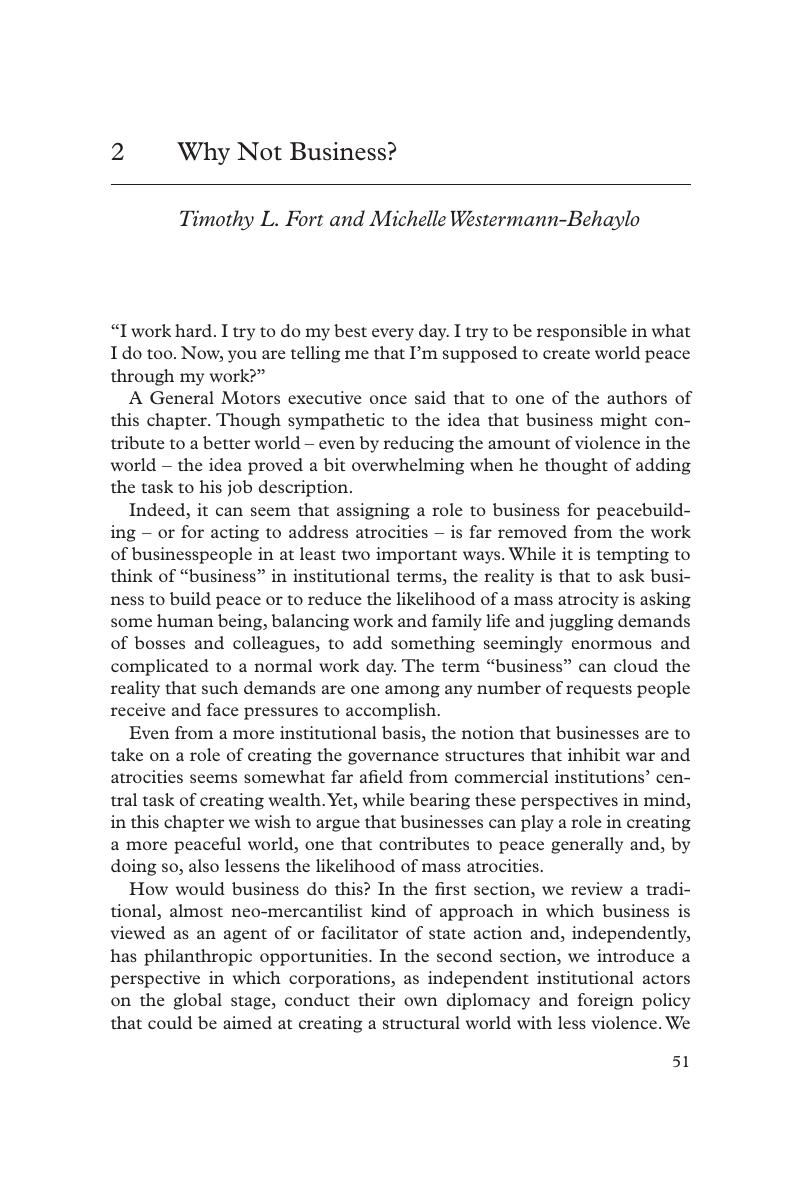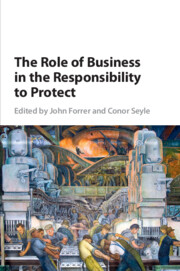Book contents
- The Role of Business in the Responsibility to Protect
- The Role of Business in the Responsibility to Protect
- Copyright page
- Contents
- Contributors
- Book part
- Overview: The Role of Business in R2P
- Introduction: The Private Sector, the United Nations, and the Responsibility to Protect
- 1 Selling R2P: Time for Action
- 2 Why Not Business?
- 3 Responsibility to Protect Trumps Business as Usual
- 4 The Responsibility to Prevent, Inc.
- 5 The Kenyan Private Sector’s Role in Mass Atrocity Prevention, Cessation, and Recovery
- 6 R2P and the Extractive Industries
- 7 Information Technology, Private Actors, and the Responsibility to Protect
- 8 Corporate Responsibility to Protect Populations from Mass Atrocities
- 9 The Private Sector and Atrocities Prevention
- 10 The Way Forward:
- Index
- References
2 - Why Not Business?
Published online by Cambridge University Press: 13 October 2016
- The Role of Business in the Responsibility to Protect
- The Role of Business in the Responsibility to Protect
- Copyright page
- Contents
- Contributors
- Book part
- Overview: The Role of Business in R2P
- Introduction: The Private Sector, the United Nations, and the Responsibility to Protect
- 1 Selling R2P: Time for Action
- 2 Why Not Business?
- 3 Responsibility to Protect Trumps Business as Usual
- 4 The Responsibility to Prevent, Inc.
- 5 The Kenyan Private Sector’s Role in Mass Atrocity Prevention, Cessation, and Recovery
- 6 R2P and the Extractive Industries
- 7 Information Technology, Private Actors, and the Responsibility to Protect
- 8 Corporate Responsibility to Protect Populations from Mass Atrocities
- 9 The Private Sector and Atrocities Prevention
- 10 The Way Forward:
- Index
- References
Summary

- Type
- Chapter
- Information
- The Role of Business in the Responsibility to Protect , pp. 51 - 68Publisher: Cambridge University PressPrint publication year: 2016



